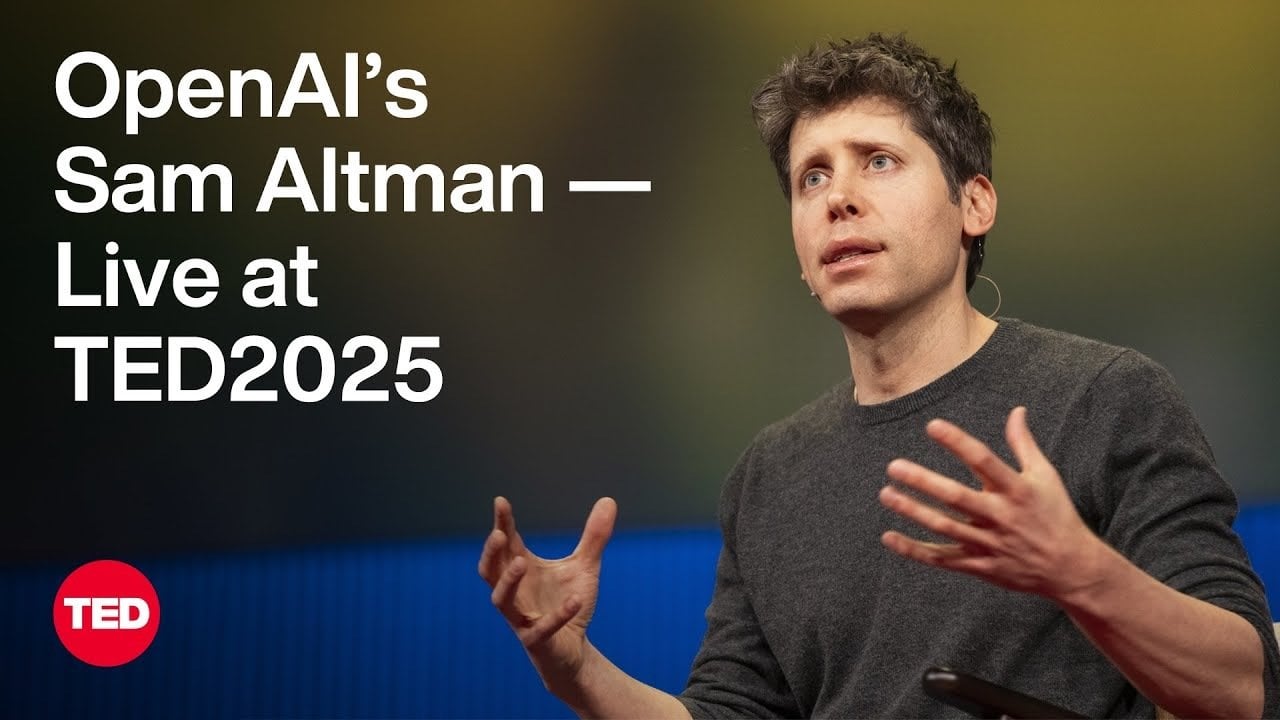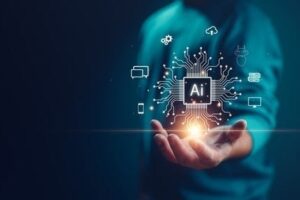Sam Altman’s TED Talk Interview

AI Breakthroughs and Ethical Challenges
Artificial Intelligence (AI) is evolving at a rapid pace, significantly impacting various industries and redefining creativity worldwide. Sam Altman, the CEO of OpenAI, shared his views on AI during a recent TED Talk, discussing both the exciting possibilities it offers and the ethical dilemmas it presents. This article summarizes his insights, focusing on the potential of AI technologies and the need for responsible governance.
Insights from Sam Altman’s TED Talk
Key Takeaways
- AI is advancing swiftly, with OpenAI at the forefront, especially in generative models like GPT-4.
- AI is altering the creative landscape, leading to discussions about compensation, consent, and ethical usage of AI-generated content.
- Breakthroughs in AI are enhancing fields like medicine and material science, but equal access and responsible usage are vital.
- Safety concerns, including cybersecurity threats and ethical dilemmas, necessitate strong oversight and international cooperation.
- Altman stressed the importance of balanced governance and transparency to ensure AI benefits society while mitigating risks.
Transformations Brought by AI Technology
AI technology has moved past being limited to specific tasks. OpenAI has developed advanced models that can create human-like text, images, and videos. These tools, particularly GPT-4, have found applications across various fields, from creative arts to scientific research.
Additionally, the rise of autonomous AI systems capable of making independent decisions opens new doors for automated processes in industries. However, this autonomy raises critical safety and accountability concerns. Ensuring these technologies are safely and responsibly deployed remains a pressing challenge.
Creativity and Ethical Considerations
AI is reshaping creative industries by providing tools for art generation, music composition, and storytelling. While these innovations offer exciting opportunities for creators, they also prompt vital questions about intellectual property rights. For example, what happens when AI-generated works are based on human-created content?
Altman highlighted the need for ethical frameworks focusing on consent and equitable compensation for creators. Updating economic structures to fairly reward artistic contributions is crucial as AI continues to influence the creative realm. Addressing these ethical concerns can ensure that the creative power of AI is harnessed responsibly.
AI’s Impact on Scientific Discovery and Society
AI plays a pivotal role in advancing various scientific fields, including medicine and materials science. It provides unprecedented tools for tackling complex challenges, such as disease research and drug development. Despite these advancements, it’s essential to ensure that the benefits of AI are available to all and do not deepen existing social inequalities.
Altman emphasized collaborative efforts among researchers, governments, and organizations to promote responsible AI use in scientific endeavors. By fostering openness and accountability, society can utilize AI to confront urgent issues like climate change and public health crises.
Safety and Governance of AI
As AI technologies become more powerful, potential risks also grow. Altman discussed threats such as cybersecurity vulnerabilities and misinformation. To address these challenges, robust safety measures and international collaboration are critical. OpenAI has instituted safety testing and preparedness strategies to ensure responsible technology deployment.
The debate between open-source and proprietary AI models adds another layer of complexity. While open-source promotes transparency, it can also lead to misuse. OpenAI plans to release powerful open-source models accompanied by safety measures to mitigate risks, emphasizing the need to balance innovation with public safety.
Societal Changes Driven by AI
AI technologies are transforming the workforce and influencing job roles across industries. Although this transformation can lead to increased productivity and economic growth, it poses disruptions for workers, especially in sectors threatened by automation. Altman advocates for collective governance and public involvement in managing these changes.
Preparing for these shifts requires collaboration among governments, businesses, and communities. Prioritizing policies for education and workforce retraining will be essential to ensure positive outcomes for affected populations.
Long-Term Vision for AI Development
OpenAI’s commitment to developing Artificial General Intelligence (AGI) highlights Altman’s long-term view of AI. He acknowledges the rapid growth of AI capabilities and the societal adjustments needed to harness its potential for solving global challenges like poverty and climate change.
The development of AGI offers significant opportunities but also comes with serious responsibilities. Maintaining human oversight over these advanced systems is crucial to avoid unintended consequences. By cultivating a culture that balances caution with optimism, society can steer the complexities of AGI development toward beneficial outcomes.
Promoting Global Cooperation and Ethical Leadership
Altman underscores the profound moral responsibility accompanying AI development. He stresses the importance of global collaboration to guide AI’s evolution ethically and safely. Establishing international standards and cooperative decision-making will be essential to address the societal impacts of AI.
Governments, corporations, and individuals all have roles in creating policies that prioritize accountability alongside innovation. By fostering collaboration and shared responsibility, society can navigate AI’s future positively while addressing its inherent risks.





